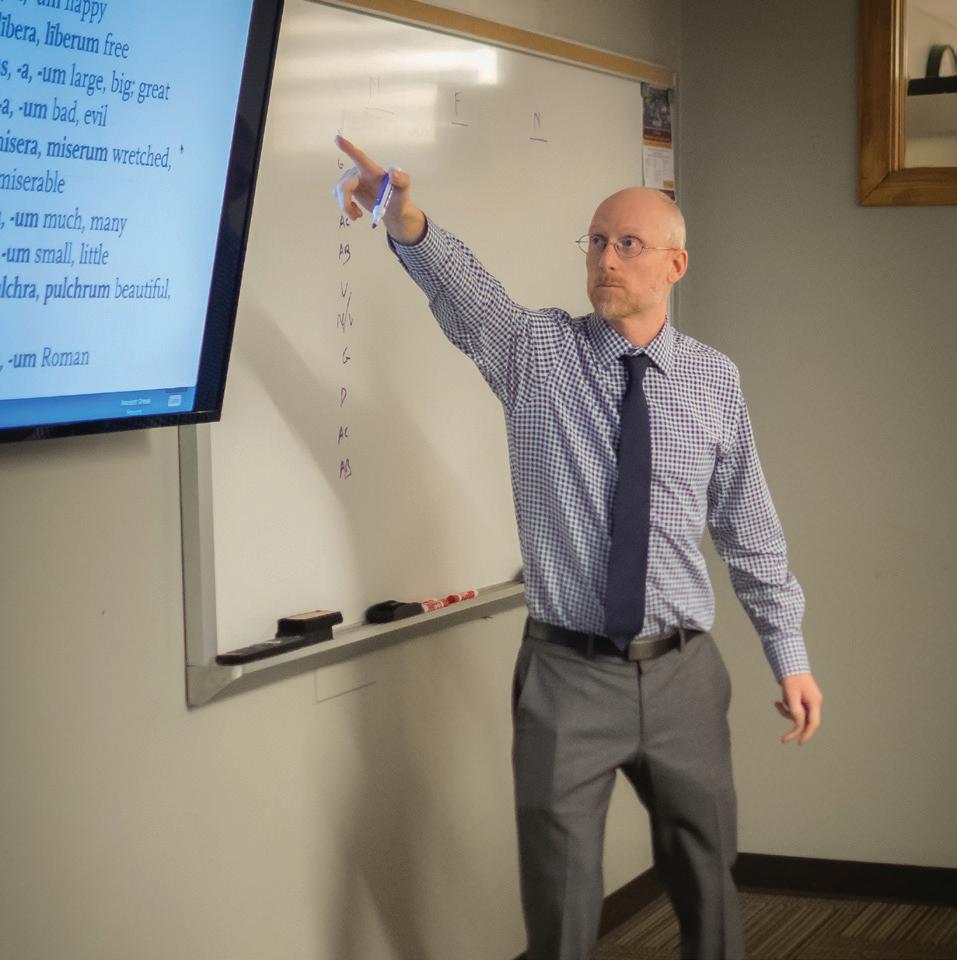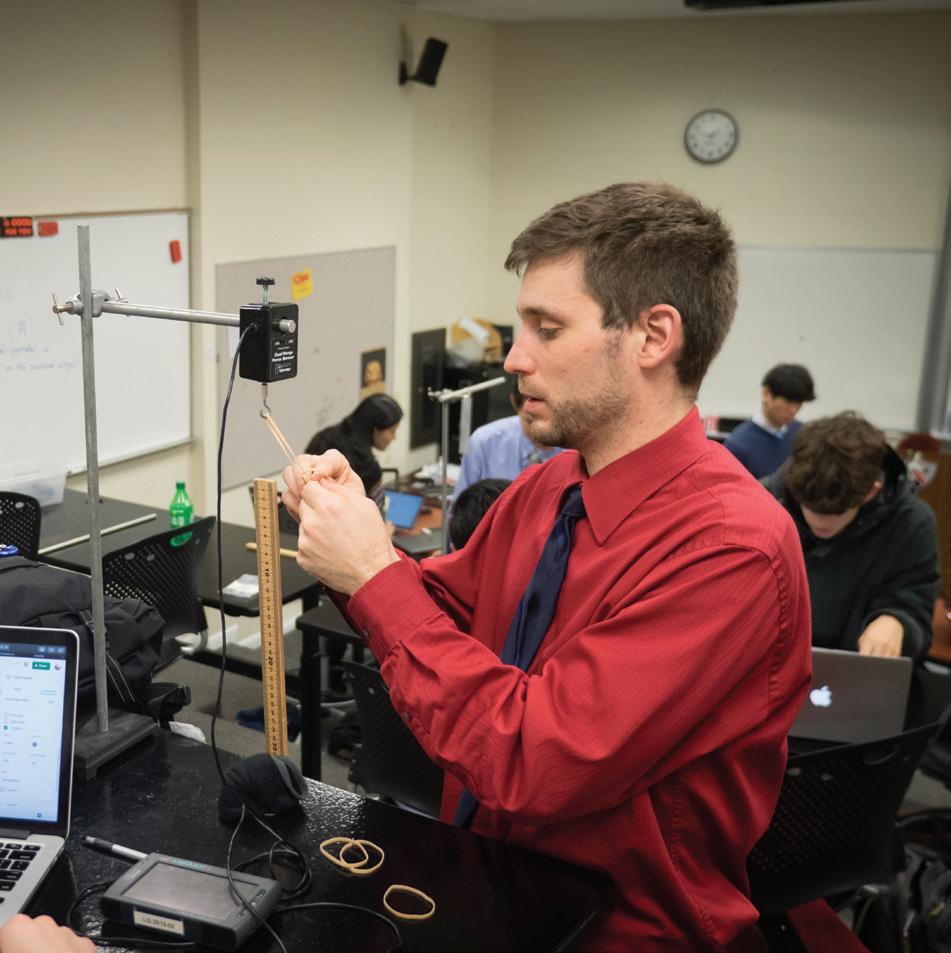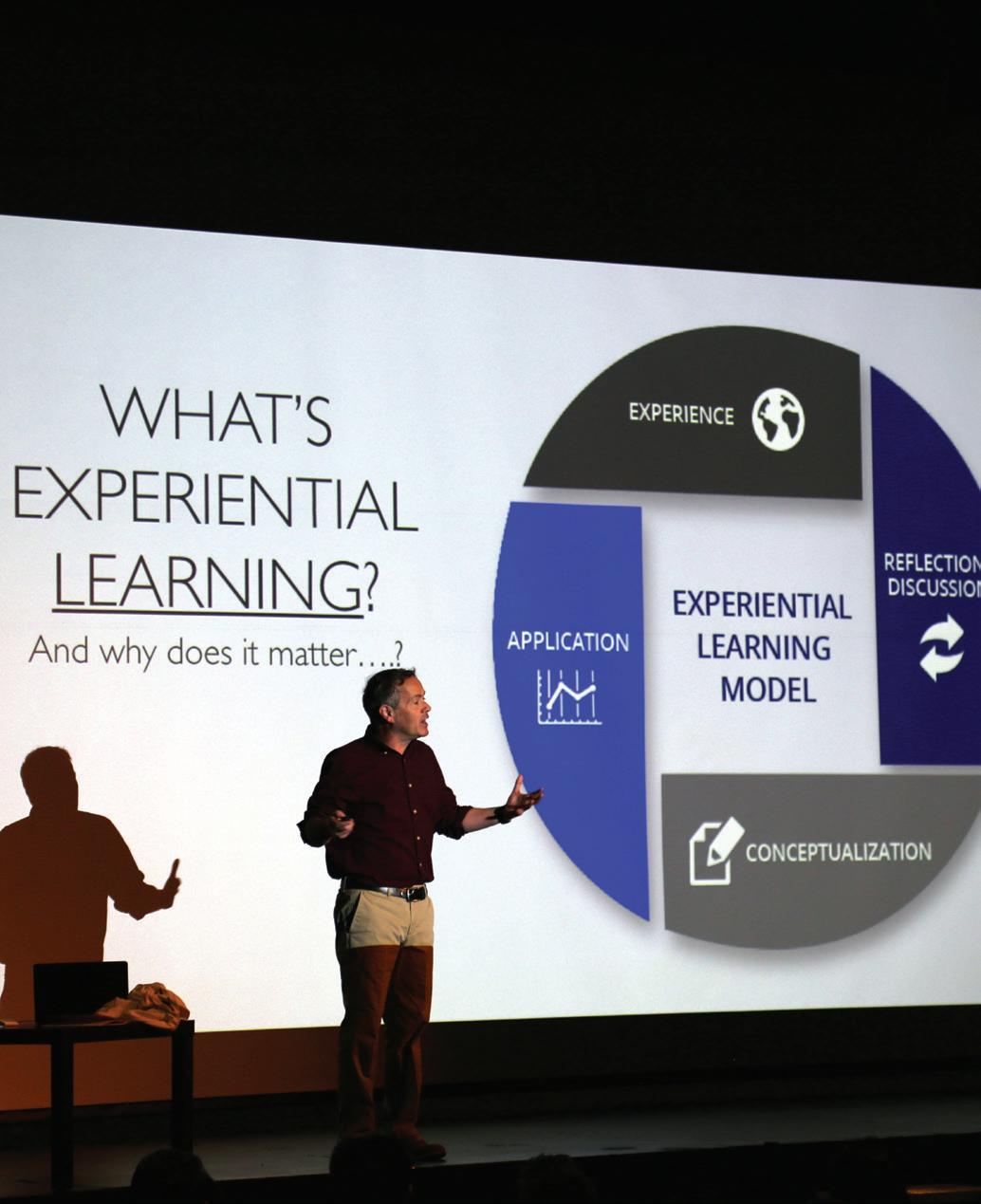
3 minute read
BLENDING OLD and NEW
Hun’s curriculum balances tradition with forward thinking
When Hun Middle School history and global studies teacher Joan Nuse wants to show a video clip to her classes, she uses Apple Air Play to transmit the clip to the Smart Board in her classroom; a process that takes about 30 seconds.
Advertisement

But it wasn’t always that simple.
Ms. Nuse, who has been teaching at Hun since 1987, used to have to rent film from the New Jersey State Museum and play it on a projector; a process that involved significant planning – and travel time.
“Now you can just find a clip and show it, and it doesn’t have to be really long. And you can find them online,” Ms. Nuse said.
On one hand, everything has changed about The Hun School since Ms. Nuse arrived: Students in Middle School math classes can take notes right on their whiteboard desks; textbooks live inside of iPads; groups collaborate on projects using Google Drive; and electives include classes such as robotics and coding.
But nestled in among the technological advancements and educational innovations at Hun are the traditional courses that make up a classic liberal arts education. After all, no technology can take the place of a good English class debate about the elements of effective persuasion.
Even Hun’s students, who create TikTok videos after class and who have grown up with iPads in hand, have been buzzing about one surprisingly popular elective: Latin.
“It gets students into this Harry Potter mythological mental space, which people find relaxing after the grind of day-to-day expectations,” current Hun Latin teacher and former Boston University professor, Dr. Seth Holm says.
On any given day in Dr. Holm’s class, students might be working in a group to translate a short story, translating grammar concepts, or working to memorize vocabulary, in a way that feels familiar to the way students in former Latin teacher Kaye Evans’ class learned in the 1980s.

Ryan Hews, head of the Upper School, would argue that even these more traditional classes have elements of a 21st-century skills classroom, which work to introduce students to skills such as creativity, collaborative problem solving, ethical decision making, and cultural competency.
“All of the content we’re teaching is used in service of students learning seven key skills, and to practice those skills,” Mr. Hews says. More than half of Hun’s students will go on to work in jobs that don’t exist at this moment, he explains. Several years ago, Hun began a gradual shift in the curriculum to prepare students to become imaginative, passionate leaders who possess the skills needed to be successful.
The first step was expanding the Upper School curriculum in a way that allowed students more flexibility in their schedules and to choose classes that most interest them. While requirements for STEM, arts, and humanities courses still exist, students are able to select the courses within those categories that they are most passionate about. It’s a departure from the typical required curriculum.
Then, faculty began systematically incorporating the skillsbased curriculum designed to ensure their students’ future preparation. It took discipline and flexibility, especially in the subjects that are traditionally more content-driven, but eventually, the shift permeated all areas of the curriculum.

What’s more, chairs in each department now map student development of those seven skills across grade levels.
NextTerm, the three-week projectbased immersion learning program, was introduced last spring. Mr. Hews hopes the momentum from NextTerm’s teaching model will continue to fuel innovation in the years ahead.
“I think what we’ve done is have the best of both worlds, where the students get the traditional instruction that is rigorous and meaningful, and at the same time, practice the skills they’ve learned across the curriculum in an experiential way, using the world as their classroom,” he says.
So, while much has changed about learning at Hun, perhaps that’s just what founder Dr. John Gale Hun envisioned.
“Dr. Hun’s original philosophy was that if you can discover what interests the individual student, you can find ways to then transfer that excitement to their learning experience,” Mr. Hews says.
And with more than 200 courses available in the Middle School and Upper School, each student is bound to find one that excites them.
Curious to learn more about what and how we teach? Visit bit.ly/huncurriculum


